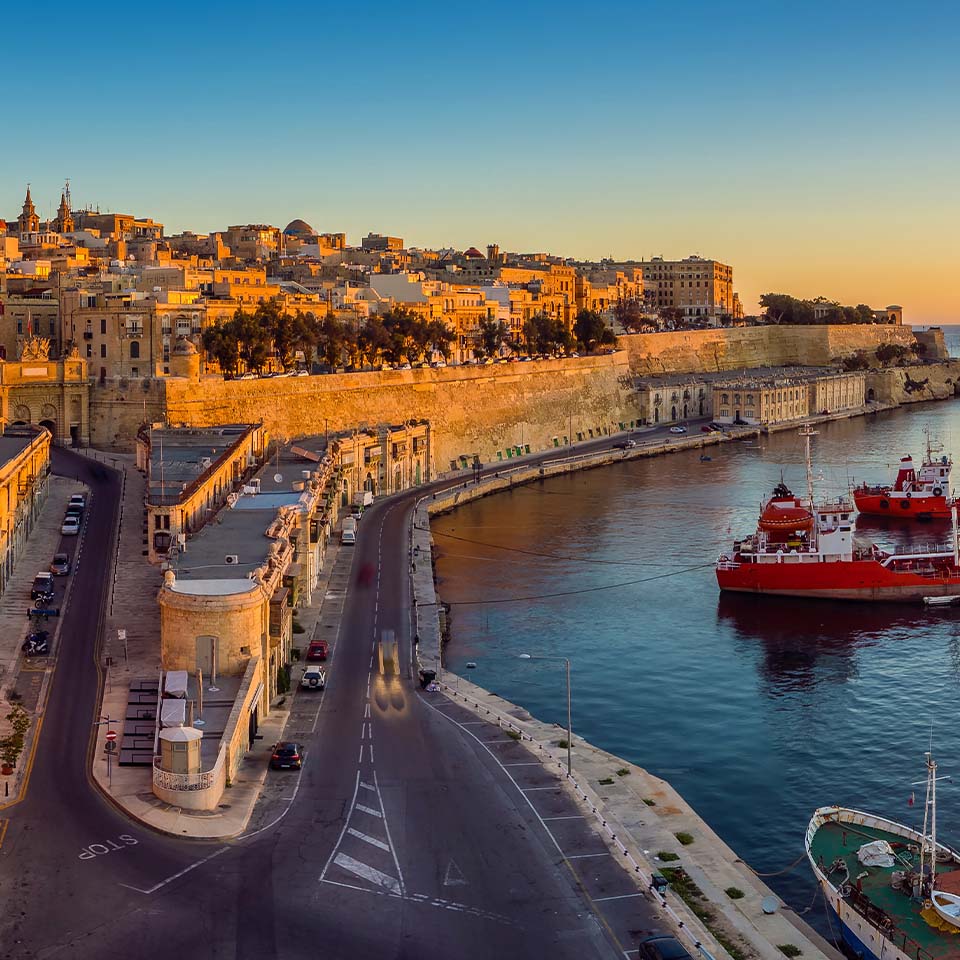Why Malta Appeals to Global Founders and Innovators
Malta has emerged as a strategic European hub for entrepreneurship, innovation, and knowledge-based industries. Its legal system, regulatory maturity, and English-speaking professional environment make it particularly attractive to founders operating across borders.
Vision 2050 outlines Malta’s long-term commitment to digital transformation, sustainability, human-capital development, and responsible growth. For founders in technology, life sciences, sustainability, fintech, and creative industries, Malta offers an ecosystem where innovation and governance intersect, and where private initiative can contribute meaningfully to public objectives.
Founders are drawn to Malta for its:
- English-language legal, corporate, and regulatory framework.
- Robust intellectual-property protection and digital-economy legislation.
- Strong academic–industry collaboration supporting research and innovation.
- Transparent regulation and a collaborative entrepreneurial culture.
Maltese Residency for Founders
For most founders, Maltese residency provides access to Europe using Malta as a safe, English-speaking and European base in the Med. Malta’s Permanent Residence Programme (MPRP) and Nomad Residence Permit offer flexible pathways for entrepreneurs establishing a business base or innovation hub.
Residency provides:
- Legal establishment within the EU.
- Access to Malta’s double tax treaty network.
- Opportunity to collaborate with Malta’s Innovation, Digital Economy, and ESG sectors.
- A practical foundation for demonstrating integration and national contribution.
While residency does not automatically lead to citizenship, founders who actively contribute to Malta’s Vision 2050 priorities may later qualify for naturalisation through merit.
Maltese Citizenship by Merit: A Founder’s Pathway
Under Article 10, the Minister may grant citizenship following an evaluation of the applicant’s residence record, conduct, and contributions. The Citizenship by Merit Regulations define the criteria for assessing exceptional service or contribution to the Republic of Malta.
Areas of recognised national value include:
- Innovation and digital transformation.
- Philanthropy, education, and community initiatives.
- Environmental sustainability and green technology.
- Cultural or scientific advancement.
Applications are assessed holistically. There are no predefined quotas, guarantees, or fast-track mechanisms. The focus is on substance, integrity, and alignment with Malta’s long-term development goals.
Malta Vision 2050: A Framework for Innovation & Citizenship by Merit
Malta’s Vision 2050 outlines Malta’s long-term aspirations for a digital, green, and inclusive economy. Vision 2050 identifies technology, sustainability, and human capital development as the key pillars of national progress.
The Citizenship by Merit framework complements this vision by recognising individuals who share these goals and who contribute to Malta’s transformation through innovation, leadership, and public-interest engagement. Contributions from founders that further these objectives may qualify as acts of merit under Article 10 of the Citizenship Act. Priority areas include:
- Clean technology and renewable energy.
- Healthtech, MedTech, and life sciences.
- Education and digital skills.
- Cultural and creative industries.
- Artificial intelligence, cybersecurity, and digital governance.
By positioning innovation within Malta’s strategic agenda, founders can ensure their entrepreneurial impact aligns with the nation’s long-term development goals.
Illustrative Areas for Exceptional Contribution
By way of illustration only, contributions consistent with Vision 2050 that may qualify for recognition by Citizenship by Merit frameworks, may involve:
- Supporting research, education, or technology partnerships.
- Advancing sustainability initiatives or green innovation.
- Creating skilled employment and fostering talent development.
- Participating in civic, cultural, or community-focused projects.
These examples are indicative and do not constitute eligibility criteria or guarantees.
Strategic Benefits of Maltese Residency & Citizenship for Founders
- Stable EU jurisdiction and pro-business climate.
- Secure and predictable legal framework for international business.
- Ability to design contributions that reflect personal or corporate legacy.
- Recognition of innovation and public service in citizenship eligibility.
- Strengthened ties to a pro-innovation European jurisdiction.
How Our Residency & Citizenship Lawyers Support Founders
Chetcuti Cauchi’s Citizenship and Residency practices work closely with innovators, founders, and family offices to design legally compliant, value-driven strategies under the Citizenship by Merit framework.
We assist clients in:
- Identifying projects that align with Vision 2050 priorities.
- Structuring philanthropic or investment contributions.
- Navigating legal residence and due diligence processes.
- Ensuring seamless integration with Malta’s national frameworks.
About the Authors
Dr Jean-Philippe Chetcuti
Managing Partner, Chetcuti Cauchi Advocates
Dr Chetcuti is a Maltese lawyer and tax advisor admitted to the Maltese Bar in 2002. He leads the firm’s Private Client, Immigration, and Tax practices and has advised international entrepreneurs, investors, and family offices on cross-border structuring, residency, and citizenship for over two decades. Dr Chetcuti co-authored Malta’s Family Business Act, the first legislation worldwide to formally recognise family businesses in law. He has represented Malta in global fora on investment migration and is recognised for his expertise at the intersection of law, tax, and policy integrity.
Dr Priscilla Mifsud Parker
Senior Partner, Chetcuti Cauchi Advocates
Dr Mifsud Parker heads the firm’s Corporate, Families & Wealth, and FinTech practices, specialising in corporate structuring, trusts, tax planning, and private wealth preservation for high-net-worth individuals and business families. She was instrumental in the licensing of Malta’s first cryptocurrency exchange in 2013, at a time when no formal framework existed. A qualified lawyer and Chairperson of STEP Malta, she is actively involved in technical committees shaping Malta’s trust, tax, and residence legislation. Dr Mifsud Parker regularly advises on residence and citizenship matters, ensuring full compliance with Maltese and EU standards of transparency and good governance.



















